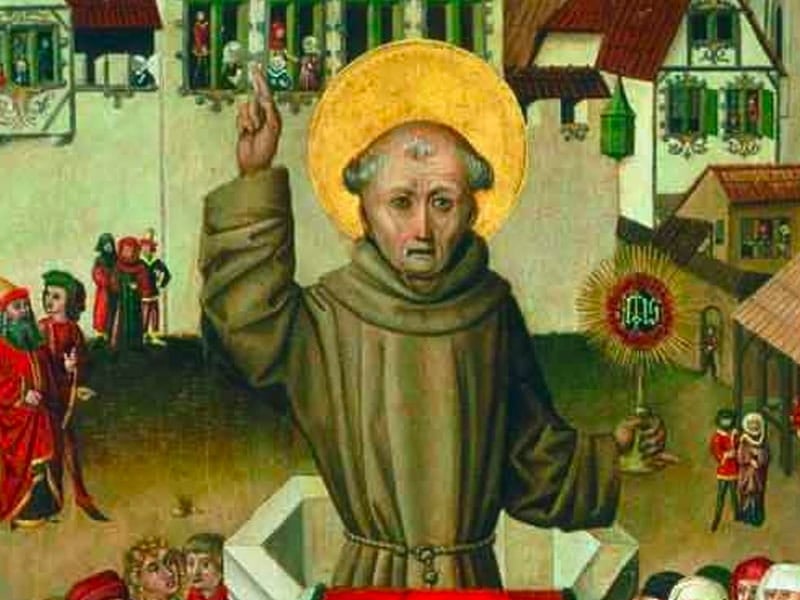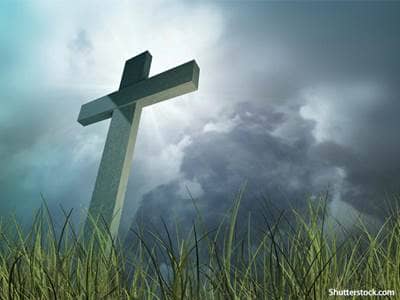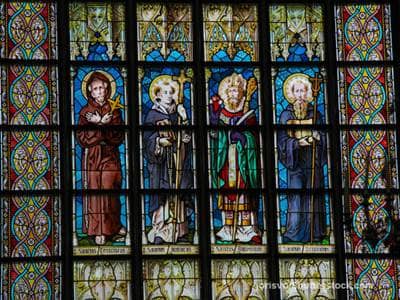St. John of Capistrano (1386-1456)

It has been said the Christian saints are the world’s greatest optimists. Not blind to the existence and consequences of evil, they base their confidence on the power of Christ’s redemption. The power of conversion through Christ extends not only to sinful people but also to calamitous events.
Imagine being born in the fourteenth century. One-third of the population and nearly 40 percent of the clergy were wiped out by the bubonic plague. The Western Schism split the Church with two or three claimants to the Holy See at one time. England and France were at war. The city-states of Italy were constantly in conflict. No wonder that gloom dominated the spirit of the culture and the times.
John Capistrano was born in 1386. His education was thorough. His talents and success were great. When he was 26 he was made governor of Perugia. Imprisoned after a battle against the Malatestas, he resolved to change his way of life completely. At the age of 30 he entered the Franciscan novitiate and was ordained a priest four years later.
His preaching attracted great throngs at a time of religious apathy and confusion. He and 12 Franciscan brethren were received in the countries of central Europe as angels of God. They were instrumental in reviving a dying faith and devotion.
The Franciscan Order itself was in turmoil over the interpretation and observance of the Rule of St. Francis. Through John’s tireless efforts and his expertise in law, the heretical Fraticelli were suppressed and the "Spirituals" were freed from interference in their stricter observance.
He helped bring about a reunion with the Greek and Armenian Churches, unfortunately only a brief arrangement.
When the Turks captured Constantinople in 1453, he was commissioned to preach a crusade for the defense of Europe. Gaining little response in Bavaria and Austria, he decided to concentrate his efforts in Hungary. He led the army to Belgrade. Under the great General John Junyadi, they gained an overwhelming victory, and the siege of Belgrade was lifted. Worn out by his superhuman efforts, Capistrano was an easy prey to the infection bred by the refuse of battle. He died October 23, 1456.
-
St. Adalbert of Prague (956-97)
-
Blessed Junipero Serra (1713-1784)
-
St. Agatha (d. 251?)
-
St. Gregory Grassi and Companions (d. 1900)
-
St. Bonaventure (1221-1274)
-
St. Maria Goretti (1890-1902)
-
Blessed John Francis Burte and Companions (d. 1792; d. 1794)
-
St. Agnes (d. 258?)
-
Servant of God Francis Garces and Companions (c. 1781)
-
St. Adrian of Canterbury (d. 710)


